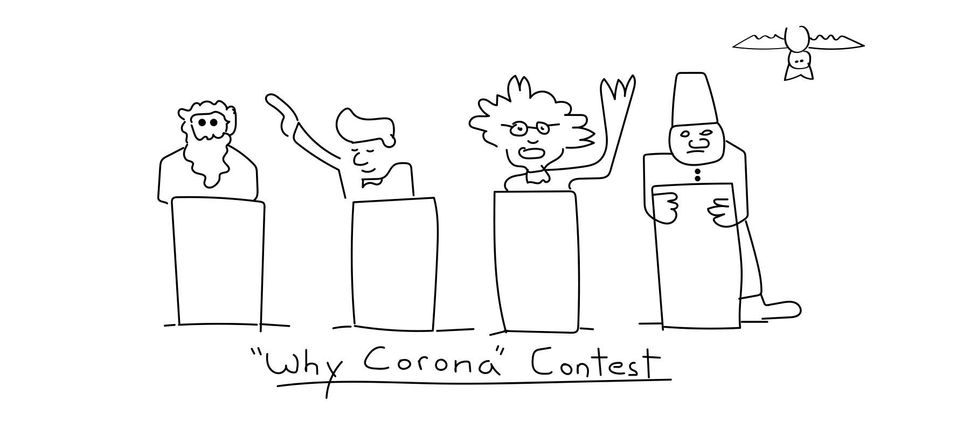Coronavirus is exposing the plagues of American society

Image by Noah Lubin
If God sent coronavirus to our shores, it isn’t because he’s punishing us. He’s simply forcing us to look into a mirror so we can finally take a good hard look at who we really are rather than what we’ve long pretended. Or maybe it’s because he was tired of watching us spending more time declaring our greatness and exceptionalism than making sure that we really are great and exceptional.
If coronavirus is the 11th plague, it’s designed to free our best selves from our worst instincts, to remind us that we can and should be better than we are and have been. It’s just that when we arrive at the Red Sea, on the precipice of an Earth-shattering transformation after which we can truly feel great again, I’m not sure we’ll have enough collective faith to keep moving forward together.

Isaac Bailey
Already, we have a religious official who leads a Bible study for members of Donald Trump’s Cabinet declaring coronavirus is evidence of God’s wrath and something about China and homosexuality. We have the lieutenant governor of Texas urging grandparents to sacrifice themselves for the sake of their grandchildren’s economic fortunes and Fox News personalities doing the same. Writers in Christian magazines are asserting that “there are many things more precious than life.”
In the middle of a burgeoning pandemic that is evolving by the hour, we’ve found a way to pit the short-term health of the economy against the absolute health of the elderly.
We are a first-world country. And yet, front-line medical professionals are begging for needed protective gear while, according to the Washington Post, states are in “a mad scramble for masks, gowns and ventilators” as hospitals are asking construction companies, nail salons and tattoo parlors for donations.
South Korea has tested 40 times as many people per capita as we have and we still haven’t been able to cobble together enough resources to make sure everyone who should be tested here will be. In Washington State, advocates are appealing to the state and federal government to ensure that those with disabilities won’t be the first denied or removed from ventilators if demand outpaces supply. In Alabama, officials are dusting off contingencies that will help determine rationed care, if it comes to that. Those with underlying health conditions might be disqualified from potentially life-saving care.
As a public service during this pandemic, the Forward is providing free, unlimited access to all coronavirus articles. If you’d like to support our independent Jewish journalism, click here.
But if we are honest, we’ve long lived this way, even after leaving slavery and a century of lynching behind. That’s why millions go hungry in the world’s wealthiest nation, why there is no sick leave for millions of Americans, why there’s a lack of adequate health care for millions even after Obamacare reduced that number by more than 20 million. That’s why we are mistreating “the least of these” in our prisons and in detention centers on our southern border even if that neglect threatens to keep coronavirus around longer than necessary.
Coronavirus isn’t a plague from Exodus. But it is a revelation that we aren’t nearly as great or exceptional as we’ve long foolishly claimed.
This is one in a series of pieces on Passover during coronavirus. Read the rest of the series here.
Issac J. Bailey is a journalist and professor of communication studies at Davidson College. His book, My Brother Moochie: Regaining Dignity in the Face of Crime, Poverty, and Racism in the American South was published in 2018.















